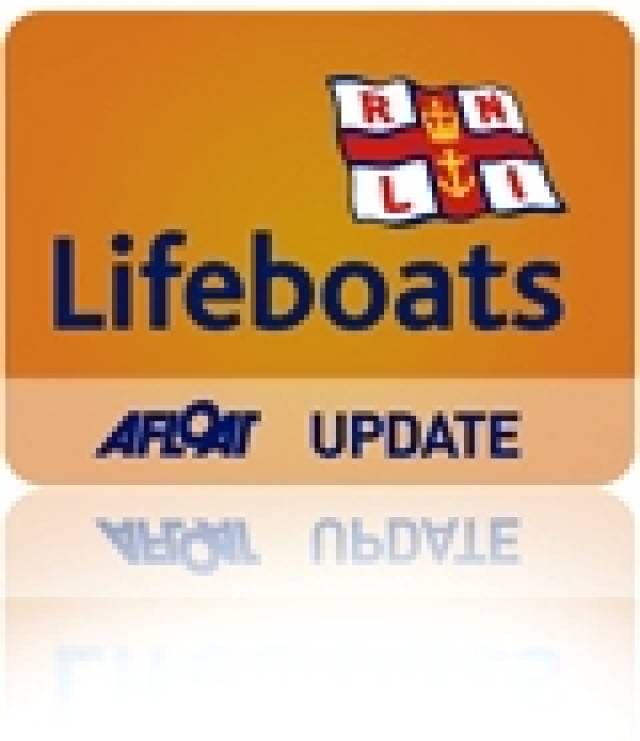The RNLI's 30th Portrush Raft Race takes place this weekend promises to deliver the usual fun frolics and madness around the Harbour from 11am on Saturday 28th May right through to Sunday 29th!
The weekend kicks off with the Junior Raft Race at 11am at the harbour, followed by music, street entertainment, The RNLI Roadshow making its first appearance at the Raft Race and a real coup for the committee.
This year for the first time also the RNLI Lifeguard team will be joining the crew for a spectacular safety display at sea, showing how all sections of the RNLI operate together to save lives.
Radio Ulster's Alan Simpson will be the compere for the day bringing his own style of wit and humour and boundless knowledge of local characters, interviewing rafters, crew, committee and sponsors.
To round it all off local band 'Wipe-out' have reformed to bring back a flavour of the Old Raft Race days.....who can forget them playing in blazing sunshine on the balcony of the yacht Club?
On Sunday there will be the Service of Thanksgiving followed by the madness and mayhem that is the Waiters Race....Come down and support your local bar people. This race gets so competitive it's unreal. Who will knock Sharman Crawford from the Ramore Wine Bar off his perch!
The Committee would like to thanks the Causeway SPAR retail group for their support both in time and money, and everyone else who has contributed to this 30th year of rafting!
Further details can be obtained by calling the Raft Race hotline 07969 814605
History - The First Portrush Raft Race
The Portrush Raft Race has its origins in a special relationship that existed between two Johns. One John (Scott) was closely involved in the day-to-day affairs of the Portrush Lifeboat; the other John (McNally) was the co-owner of the Harbour Bar in Portrush.
In summer 1981 John Scott brought into the Harbour Bar a Lifeboat Magazine containing an article about a Raft Race that the Oban Lifeboat Ladies Guild had successfully run as a fund raiser. John Scott showed the article to John McNally and both were in agreement that the West Bay would provide an ideal venue for running a similar fund raising event in Portrush. The matter rested for some months until there was a clearing-out of the bar shelves when the magazine re-appeared.
A letter was sent to the Oban Ladies Guild who were most helpful in providing copies of their rules and entry form along with some very valuable comments on their experience. The way was clear to start and all that was needed was some willing volunteers to help with the organisation. Regulars of the Bar offered their support and so the first Raft Race Committee was formed. Guinness offered to be the main sponsor which significantly helped in bringing the Portrush Raft Race to the public's attention. The spring bank holiday weekend was selected as it tied in with the Coleraine Borough Council's idea of having a Spring Bank Holiday Fair in Portrush.
An idea was hatched to have a Le Mann type start from the West Beach with crews standing at the water's edge and then sprinting up the beach to collect their rafts and head for the sea with the finish line at the Lifeboat in the harbour. It was agreed from the start that the focus would be family entertainment, rather than speed, with special emphasis being placed on raft design and crew costume.
The first race, which was held on Saturday 29th May 1982, attracted 39 entries with a number making a very special effort to design their rafts attractively. The rafts ranged from the most basic design to the resplendent Quinquireme of Nineveh complete with galley slaves, skeleton, albatross and shark. The ladies of the Fantasy Island also attracted considerable interest with their palm tree, grass skirts and badly fitting coconut shells. The sun shone and the wind from the South West was fresh providing a welcome assist for the tired crews.
The first across the line was the aptly named Portrush Flyer (J Porter, C Irwin, W Green, W Gallagher, N Gaile and N Gibson see above) followed by Titanic Raft 1 and Leonora. The first all ladies raft was also Leonora which was crewed by the girls from Dunluce School, Bushmills ( K Hunter, K Diamond, W Torrens, P McConaghy, S Boswell and M Parke). The best designed raft was Quinquireme of Nineveh ( B Magowan, C Woffinoin, D McKeown, A Creelman, N Adams and C Thompson) and the best costumed crew were Fantasy Island (M McFadden, V Haslam, J Sutchliffe, G Douglas, E Thompson and E Sutcliffe). There were other awards eg most humorous Titanic 1, Perseverance Titanic 2 and most important of all most sponsorship which went to the boys of Dunluce School Bushmills whose raft Big Berta raised over £650.
The first Raft Race rose over £3000 which was way beyond the committee's expectation and guaranteed the continuation of the event. In the 22 years that the two John's were involved the race grew from a Saturday afternoon event to an action packed Raft Race Weekend. Their involvement ceased after the death of John Scott in 2004. It is wrong to single out individuals but particular mention must be made of John and Fay Scott who gave the event the life that made it so enjoyable for all involved in the organisation. Margaret and Alan McFadden who also showed everyone how to enter the spirit of the event and have great fun. Finally mention must be made of Rosie Kirker Millar who sadly recently passed away. Rosie epitomised a can-do spirit and gave so much energy to the committee.
J McNally
May 2011
































































